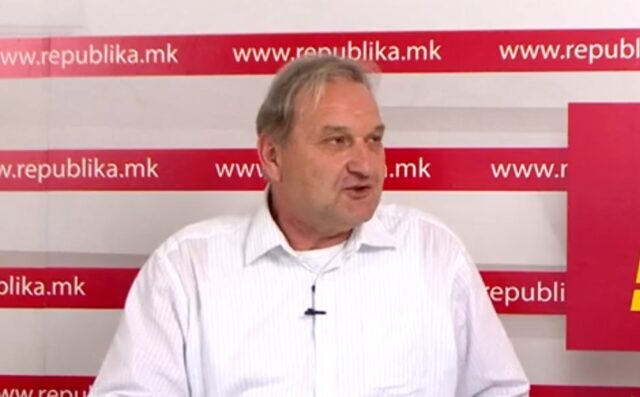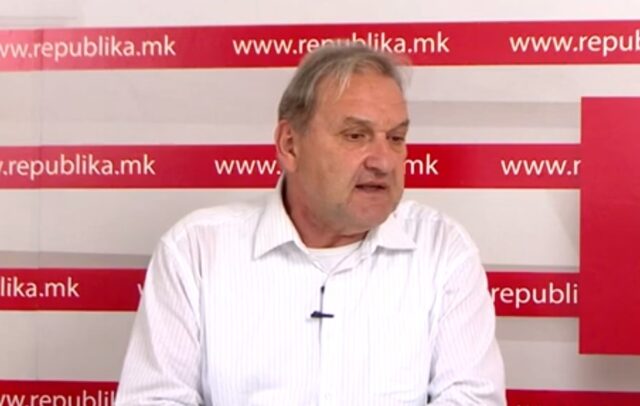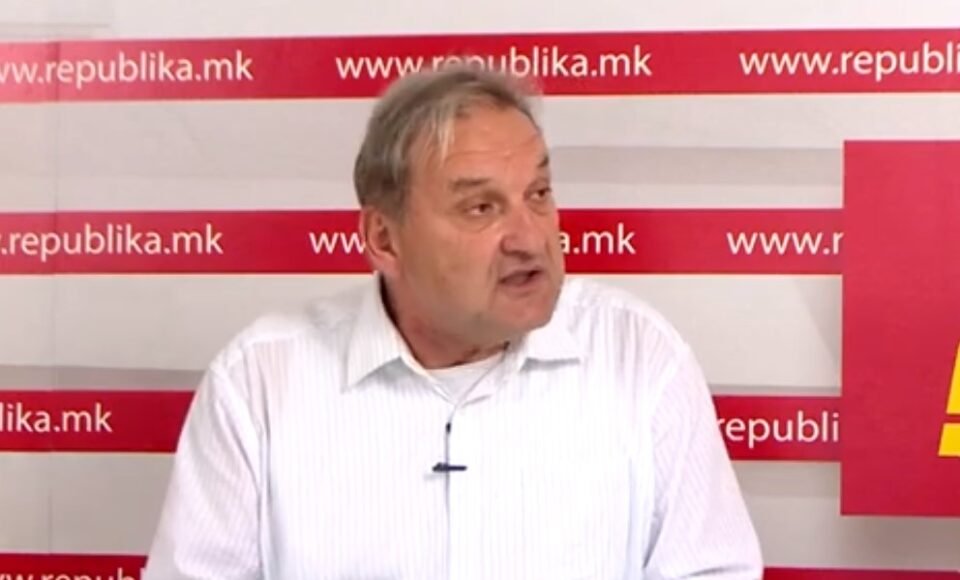I speak on behalf of the Macedonian diplomatic union, but Minister Osmani was not happy that we had an opinion about his work. In the proposal of the procedure against me, it is stated that I participated in violent demonstrations, but I did not go with the procession through the Ministry of Foreign Affairs to the Parliament because it was raining that day and I came directly in front of the Parliament. The second point from the evidentiary material is also ridiculous, the damage done to the Ministry of Foreign Affairs, says Ambassador Zoran Dabić in an interview with “Republika”.
Dabić says that the hunt against him started since the time of Minister Nikola Dimitrov, when he returned from being an ambassador to NATO and secured the membership invitation.

After I returned to the Ministry of Foreign Affairs, Minister Dimitrov never called me to meet. He marginalized me. I thought it was isolated case, but then I realized that the principle on which Minister Dimitrov and now Osmani work is quite identical. It is the centralization of power in the Ministry of Foreign Affairs, the creation of a very small group in the cabinet who take over the duties of the directorates in the MFA, with which it atrophies and now we have a situation where ten percent of the employees are working. The others are isolated, removed, disappointed or punished. There is unprecedented apathy in the MFA, the ambassador explains.
He is convinced that the code of ethics that exists within the Ministry of Foreign Affairs is being abused.
The code of ethics is a back door way to punish someone bypassing the constitution and the law because it does not have the force of a legal act. The minister determines what is ethical, what is debatable. We, as a trade union, contested the code of ethics in the part where the minister has to give consent for a public performance, and it is realistic to collapse this code, which is anything but ethical. That is also the reason why diplomacy is not present in the media. It is very rare to see ambassador interview. We have to have the consent of the minister to give an interview or to make a public appearance according to the code of ethics which is not a law and is misused to punish more liberal people.
Dabić claims that as diplomats they learned about the French proposal from the media.
That proposal has not been seen by anyone in the Ministry of Foreign Affairs and it was not submitted in a regular way. It is seen only by a few people closest to the minister and that proposal did not pass through a diplomatic filter. If it goes through several diplomats, each one gives their own proposal, what is good or bad. To see the risks, whether something pays off and whether more is gained or lost, or vice versa, and to give an opinion to the minister. It is true that the minister makes the decision, but this way they fall into subjectivity, theirs or that of one or two closest collaborators, and bring disastrous decisions based on insufficient analysis.
Explaining the French proposal, Dabić is convinced that it was previously agreed upon by both sides.
A basic rule in diplomacy is that when you are the chairman, you agree on the processes in advance. An unverified proposal in diplomacy is never put on the table because the one who puts it on the table risks his credibility, explains Dabić.

Explaining the protocol, the ambassador says that during the negotiations, all countries will have the opportunity to make comments, but all of them, except for Bulgaria, do not go beyond the Copenhagen criteria.
It’s clear to us what the target is in the pressure from Bulgaria. Diplomatically speaking, before membership itself, one of the points may be Goce Delcev and the Bulgarian side may say that it does not agree and the matter will stop again. All the time they will be put in a position to stop the process, and an example is Kovatchev’s reaction to Pendarovski over the Miladinov brothers.
Dabić repeats that the beginning of the negotiations is divided into two phases and that the real opening will happen after the change of the Constitution.
It seems that they are consciously walking into a dead end, just to open something. This is done to show some success, says the diplomat.
Listen to the entire conversation in the video interview conducted by Igor Caveski




Comments are closed for this post.